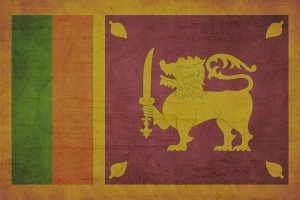Sri Lankan Muslims have been left stripped of their human rights amid a new wave of cases of the government forcibly cremating Muslims under the guise of COVID-19. When the outbreak of the coronavirus first appeared in March, the government started forcibly cremating Muslims despite calls to respect the religious sensitivities of their families.
Now that a second wave of the virus is spreading rapidly in the country, the Sri Lankan government has intensified its crackdown on Sri Lankan Muslims by forcing larger numbers of families into the cremation of their dead relatives. The most recent case at the time of writing involved a 20-day-old Muslim baby who died after allegedly testing positive for the virus, yet the mother who was nursing the baby and the baby’s father reportedly tested negative. The parents were left absolutely distraught that their pleas were dismissed and the baby was taken away from them to be cremated against their will.
My family members in Sri Lanka said they know of at least 54 Muslims, some of whom who did not die of COVID-19, but were still cremated over the objections of loved ones. The government has also reportedly forced cremation upon Muslims who had not even been tested for COVID-19 and had other illnesses but were still forced to cremate the bodies. Some of these families had even been asked to pay for the bodies to be cremated despite them pleading for authorities not to take away their religious right to a traditional burial.
In Islam, it is important that once a person dies they are buried as part of their religious obligations. Denying a person their dignity after death is unacceptable and a fundamental breach of basic human rights. Sri Lanka is the only country in the world apart from China that is making cremations mandatory amid the pandemic. In doing so, they fail to heed advice from the World Health Organization (WHO). The WHO states that there are no issued guidelines finding that the burial of victims posed any danger to public health. Instead, the WHO urges that the religious sensitivities of Muslims must be upheld.
Frustratingly, the Sri Lankan government continues to make baseless allegations that they have to cremate bodies due to a potential spread of the virus, but there is no evidence of this. As a Sri Lankan Muslim myself, with family in the country, I know only too well that the agenda behind these cremations is to further ostracize the Muslim community and intensify Islamophobic sentiment. There have been a number of anti-Muslim riots over the years in Sri Lanka and Islamophobia has only further intensified since the tragic Easter bombings. Muslims in the country feel that they are being punished by having their final rites taken away from them.
In another blow to freedom of religion, Muslims in Sri Lanka were denied justice by the Sri Lankan Supreme Court and the mandatory cremations were kept in place.
Last month Arab News reported that the Independent Permanent Human Rights Commission (IPHRC) of the Organization of Islamic Cooperation (OIC) based in Jeddah expressed its deep concerns over the human rights violations against the Muslim minority in Sri Lanka. The commission is urging the Sri Lankan government to allow burials of Muslims in the country.
The issue has also been raised by the U.N. Special Rapporteur on Freedom of Religion and Belief, who also urged the government to respect the burial rights of its Muslim minority.
In the U.K. where I live, Britain’s shadow minister for foreign affairs, Stephen Doughty, raised the issue of Sri Lankan Muslims being denied burial rights alongside other religious communities across the world and called for the British government to act and call out the human rights violations that are occurring in the country of Sri Lanka. Yet calls from various countries, human rights organizations, the United Nations, and the WHO have sadly gone unheard.
Meanwhile, media reports within Sri Lanka from right-wing publications have been flaring up tensions against the Muslim minorities’ request and supporters of the governing Sri Lanka Podujana Peramuna party have said that Muslims would “weaponize” the virus if an infected person’s remains were released to them. Such statements are sheer propaganda and only further intensify tensions between the communities.
President Gotabaya Rajapaksa must consider the calls to action from the Muslim community and ensure that our rights are being fulfilled, or face be held accountable for violating the basic human rights of his citizens.
Tasnim Nazeer is an award-winning journalist and Universal Peace Federation Ambassador for Peace.

































